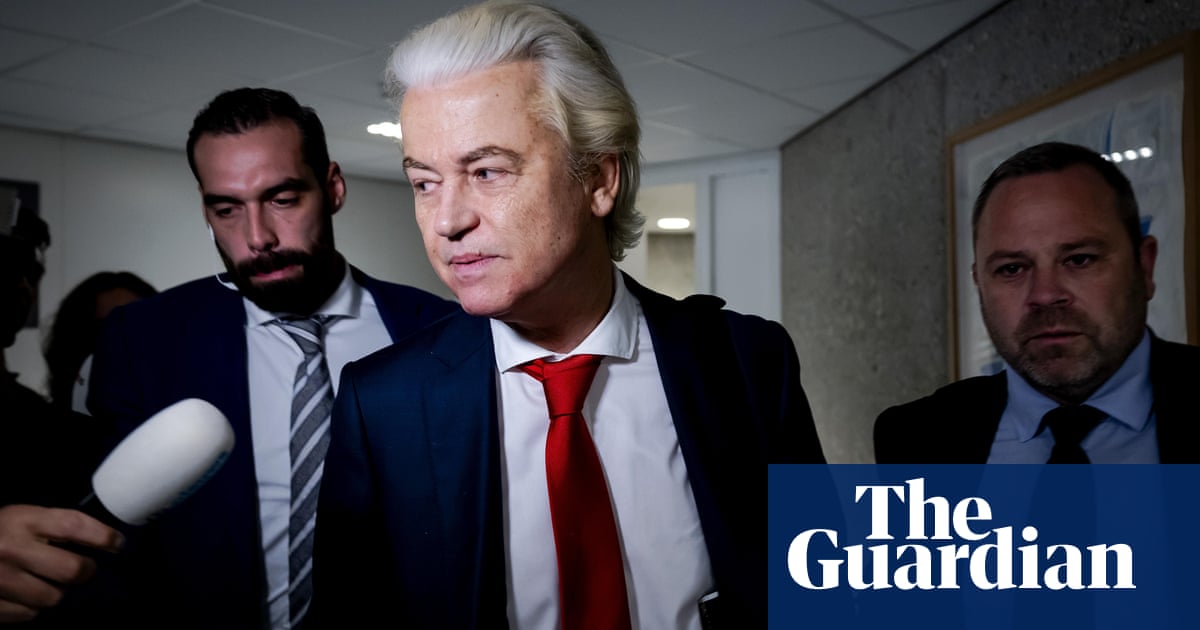The Dutch far-right leaderGeert Wildershas pulled his party out of the country’s four-party ruling coalition in a row over immigration and asylum policy, signalling the imminent end of the Netherlands’ 11-month-old government.
Wilders, whose anti-Islam Freedom party (PVV)finished first in parliamentary elections in late 2023, said on Tuesday he had informed the prime minister, Dick Schoof, that all PVV ministers would leave the government.
The far-right leader had earlier announced on social media after a brief meeting of the four party leaders in the alliance – sworn in only last July – that since there had been “no sign-off on our asylum plans” the PVV was “leaving the coalition”.
Wilders said the partners refused to adopt his 10-point plan for halting immigration for the purpose of seeking asylum, as he had demanded last week. Legal experts have said several of the proposals are in breach of European human rights laws or the UN refugee convention, to which theNetherlandsis a signatory.
Dilan Yeşilgöz, the leader of the liberal-conservative VVD party, a coalition member, said Schoof had urged the leaders to act responsibly before Tuesday’s meeting.
“The prime minister, who appealed to us this morning, said that we are facing enormous international challenges, we have a war on our continent, an economic crisis may be coming our way,” Yeşilgöz said.
She said she was “shocked” by Wilders’s decision, which she described as “super-irresponsible”. Yeşilgöz added of the far-right leader: “We had a rightwing majority, and he lets it all go for his ego. He’s just doing what he wants.”
Another coalition party leader, Caroline van der Plas of the populist Farmer-Citizen Movement (BBB), said she was very angry, and also called Wilders “irresponsible”. Nicolien van Vroonhoven of the New Social Contract (NSC) said it was “incomprehensible”.
Wilders’s plan includes enlisting the army to secure and patrol the borders, closing refugee accommodation facilities, sending all Syrian refugees home, suspending EU asylum quotas and banning family members joining refugees already in the country.
Sign up toThis is Europe
The most pressing stories and debates for Europeans – from identity to economics to the environment
after newsletter promotion
Frustrated by the lack of progress, he warned at a press conference last week that if immigration policy was not toughened up by implementing the points on his list, the PVV – the largest party in parliament with 37 seats – would be “out of the cabinet”.
Schoof is expected to hand his resignation to King Willem-Alexander later on Tuesday, less than a month before the Netherlands is due to host a summit of Nato leaders in The Hague.
